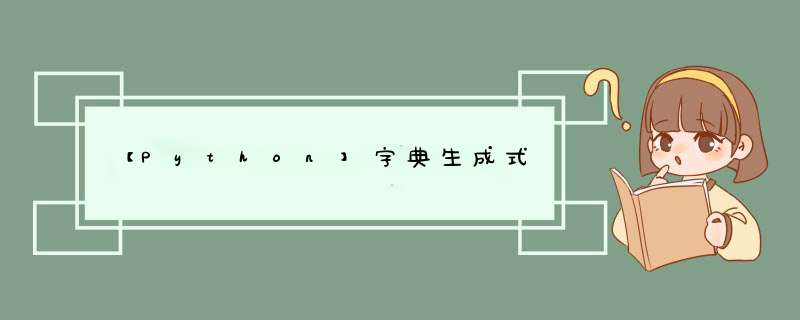
# 昵 称:追光者♂
# 时 间: 2022/4/24/0024
items = ['Fruits', 'Books', 'Others']
prices = [99, 88, 77]
# 字典生成式
d = {item: price for item, price in zip(items, prices)}
print(d)
上述代码,将第一个列表当做‘键’。将第二个列表当做‘值’,根据“公式”,生成了一个“字典”。
写成 item.upper() 之后,可以将输出都变成大写。。。
items = ['Fruits', 'Books', 'Others']
prices = [99, 88, 77]
# 字典生成式
d = {item.upper(): price for item, price in zip(items, prices)}
print(d)
当数目不匹配时:
items = ['Fruits', 'Books', 'Others']
prices = [99, 88, 77, 100, 200]
# 字典生成式
d = {item.upper(): price for item, price in zip(items, prices)}
print(d)
上面有5个价格,那么输出是:
也就是说,以数目短的那个为基准进行匹配生成。
欢迎分享,转载请注明来源:内存溢出

 微信扫一扫
微信扫一扫
 支付宝扫一扫
支付宝扫一扫
评论列表(0条)